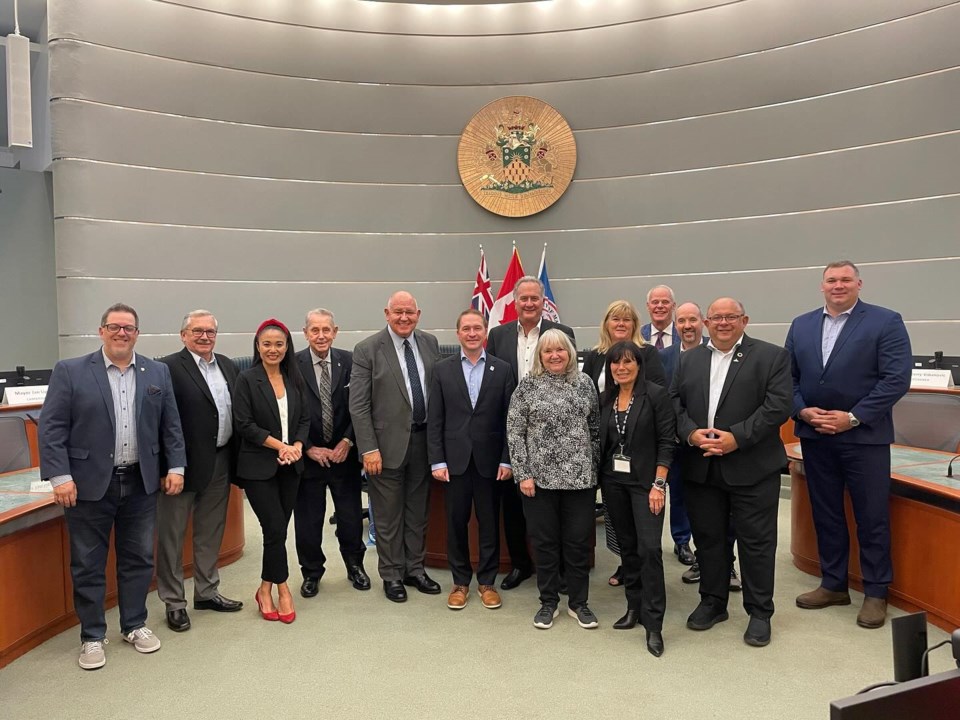Big city mayors across Ontario are zeroing in on homelessness and addiction issues, calling on upper levels of government in a sweeping motion passed last week to take more action.
Yesterday, Cambridge Mayor Jan Liggett released a 17-minute video on social media explaining the motion and her role in bringing the conversation to other mayors and communities across the province.
She references a poll she and the City of Cambridge commissioned to gauge how Ontarians feel about the province's response to the crisis of mental health and addiction. This poll also showed support for changes to health care consent acts for involuntary treatment of those who may be addicted to drugs or going through mental health crises.
"This crisis has reached into the very fabric of our lives. It has turned our streets into the theatre of mental crises and places for open drug use," she said in the video.
"We keep getting caught up in the argument about Charter Rights and we're not fixing the problem when we get caught in that."
Liggett along with 28 out of 29 mayors associated with the Ontario Big City Mayors (OBCM) group all agreed that more needs to be done as this issue is only getting worse.
One of the highlighted points in the motion is to review and update the Mental Health Act and the Health Care Consent Act, neither of which OBCM says addresses the current state of this crisis across the province.
Liggett said if she looks out her window she can see people "in the throes of addiction" and this left her thinking that these individuals don't want to live this way.
"I see how they have no capacity to make decisions for themselves anymore," she added. "I thought, they don't want to live this way, but they can't make that decision anymore themselves; they're beyond that point."
The goal is to immediately review the Mental Health Act and the Health Care Consent Act to see what the best outcomes would be and explore the option of involuntary treatment.
The original version of the motion asked the province to invoke the notwithstanding clause to prevent any constitutional challenges that come along with the treatment. What was passed was a softer version, as originally reported by the Trillium.
The motion also calls on the implementation of "Diversion Courts" throughout the province and expanding the scope and reach of these courts, with a focus on rehabilitation rather than punitive measures.
Another big point Liggett and other Cambridge city councillors like Adam Cooper have made is bringing more power back to municipalities and police forces to help deal with homelessness, encampments and open drug use.
According to the motion by OBCM, there are "at least 1,400 homeless encampments now present in Ontario communities, putting unsustainable pressure on municipalities and public spaces creating a humanitarian crisis."
In her social media video, Liggett said she doesn't often like telling people to get their hopes up, but that we're "on the right track finally."
The OCBM strongly requests that the province and federal governments take on an intervener status in the case of court decisions that restrict the ability of municipalities to regulate and prohibit encampments.
"It means instead of going it alone and losing in a court all the time, because we have judges who make decisions when it should be legislative decisions that the province of the federal government can ask to have permission to be a party to the court case," she said.
This would allow for the province to bring in more witnesses, lawyers and evidence in a case to help the municipalities.
The mayors are also hoping to amend provincial and federal laws to introduce legislation prohibiting open and public use of illicit drugs and public intoxication.
Liggett hopes that police around the province start taking drugs or alcohol from those using it on the street as they do in other communities.
"When they see drugs being used, they walk up, they take the drugs away, or the alcohol away, because it is still illegal," she said. "But, there are some who don't do that, but they do have the right to do that currently, and it is my hope that all police departments across this province start doing that."
Another key point in the motion is for an update on the "Trespass to Property Act" with a review to include but not be limited to options to assist communities in addressing aggressive or repetitive trespass.
This would give the municipalities and police more power to remove those who may be constantly trespassing on private or public property. There is no mention from the OBCM or Liggett if this is meant to specifically target the growing number of encampments that are, "creating a humanitarian crisis," as described in the motion.
Liggett does say that the community is facing trespassing issues, "every day," and this will "establish for municipalities provincial priority of maintaining public order and public safety to allow strong local deterrence to offences related to social disruption and public safety risks."
Before any new measures are put in place, the OBCM said it is critical for the province to move quickly and create a plan to build a "plethora of supportive housing units," especially units that specifically address the needs of those who have started treatment, and need shelter, care and further supports as they continue their recovery journey.
"That is why OBCM’s motion also asks both the Province of Ontario and the federal government to create a blueprint to the build of the thousands of beds that are needed, and include with that blueprint the source of funding and municipal funding programs required," said the OCBM on its website.




